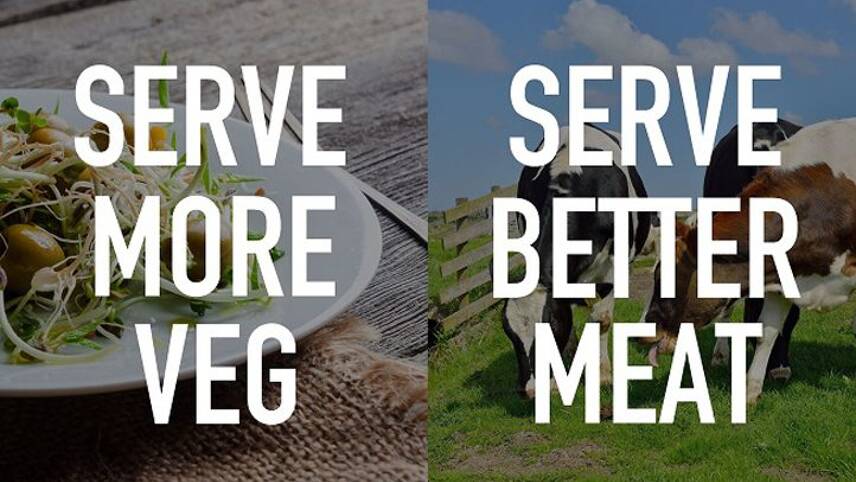Register for free and continue reading
Join our growing army of changemakers and get unlimited access to our premium content

Whether it’s out of concern for the health of the planet, or indeed their own wellbeing, there are clear signs that UK consumers at least are making a clear move away from a purely meat-based menu. The question is, are restaurants responding to this shift and offering a sufficiently interesting, nutritious and delicious array of vegetable based dishes to satisfy the culinary desires of the flexitarian generation?
All the evidence points to a public that’s looking for something more than the traditional meat and two veg, with almost half of us identifying as flexitarian and only one in five insisting that a good meal requires meat. It also appears to be more than just another of those here today gone tomorrow food trends. We are ordering a fifth less meat when we eat out than we did 15 years ago and consume 40% less red meat.
Operators that have changed the emphasis of their offering and shaken up their menus are reaping the reward. Just look at the success Pret a Manger has had with its veggie stores, what started as a temporary experiment in one central London site, now being rolled out in a number of locations due to public demand that far exceeded even the expectations of this popular grab and go operator.
It’s this combination of pressing environmental and health imperatives allied with consumer demand that makes for a compelling case for all foodservice businesses to Serve More Veg and Better Meat. That’s the theme of the Sustainable Restaurant Association’s campaign this month. And to help those looking for a helping hand in creating a winning recipe, we’ve spoken to a number of the most forward-thinking chefs and operators who are already grasping the nettle.
Between them, they’ve supplied tips and techniques for making veg-based dishes as irresistible to diehard meat eaters as they are to those more flexitarian customers, advice on how to satisfy the appetite of even the most carnivorous clients with smaller portions of meat and an emphasis on high standards and discovered that even tiny tweaks to their menu can change customers ordering habits in a major way.
One chef who’s followed the SRA’s advice to #FlipTheMenu, is Josh Eggleton. The chef, best known for his Michelin-starred Pony & Trap, has this month opened up a new venture, Root, where ten veg dishes take pride of place. There is a selection five meat and fish side dishes that can be added. Josh says: “Just having meat and fish on the side will get people thinking and realising that they don’t need meat with everything to make a delicious meal.”
At the former International Sustainable Restaurant of the Year, Les Orangeries, in central France, patron Oliver Gautier and chef David Royer have just launched a new menu – one which is pitched mid-way between their regular and vegetarian menus. It’s made up of about 70% veg and 30% meat or fish. They still want their customers to enjoy the pleasure of protein, just not in such large quantities, reducing the portions from about 130g to 85g. We’ll be watching this experiment with keen interest. As well as giving vegetables the starring role they deserve, both of these restaurants are making meat a treat. That’s a move also being practiced by small group Thali Café, which recently opened its eighth site and the onus is on vegetables, but the meat that is on the menu is all high welfare and sourced from local farms, the very definition of better meat.
Subtle changes can have a significant impact, as we’ve discovered from a small menu tweak made by chef patron Sam Clark at his long-established London restaurant Moro. The vegetarian mezze has appeared on the menu for almost as long as the 20-year-old restaurant has been open. In the spring, Sam decided to experiment and simply moved the dish to the top of the list of main dishes on the menu. Since then it has consistently sold 25% more.
Sam thinks he know why this tweak has had such an effect on sales: “I think there are a couple of main reasons for this. Firstly, psychologically, people see it sitting proud at the top of the menu, rather than at the bottom as some sort of afterthought. The other big thing, is that once a few people start ordering it, others seeing it coming out of the kitchen and think ‘wow’ that looks amazing. They ask the waiter and then order it themselves. It makes me quite happy when I see someone who has ordered one of the protein based dishes see their companion with the mezze and look really jealous.”
This month’s campaign is a celebration of all things plant, not an imposition of a vegan’s charter. This is not a manifesto for penance or punishment, but an opportunity to capitalise on a shift in eating habits and to create a whole new culinary canvas. Chefs really do have the power to change behaviour and small changes can make a difference, as shown by Moro.
Visit the campaign website for more inspiration from the chefs mentioned in this piece, and join the conversation on social @FoodMadeGood using #FlipTheMenu.



Please login or Register to leave a comment.